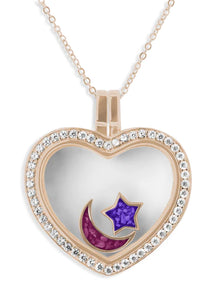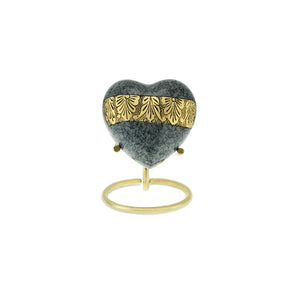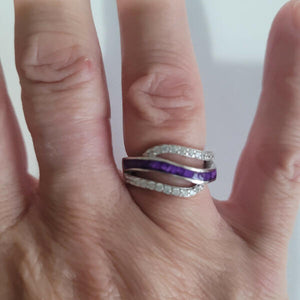Current Inheritance Tax regulations- a quick look

View 'Entire Collection' or 'Our Most Popular' or Select a Category Below
We carry an extensive choice of adult brass cremation urns. There is a great variety of shapes in the traditional classic styles, to suit everybody’s taste, as well as modern stylised forms, like differently shaped teardrops.
Each one is lovingly crafted from brass which has a lovely weighty feel to it, and they all have a perfectly smooth finish with either a highly polished or a matt surface. Many styles of decorations and adornments in bronze, brass, nickel silver and pewter are available to choose from, and our adult brass cremation urns come in a multitude of different hues.
Adult tear drop shape urns are a popular alternative to the more traditional shape urns, and we offer options in both brass and aluminium. The unique double tear drop form has an outer drop with a dimpled hammered surface and a highly polished inner drop in brass or nickel silver, or in a brown and brass, or decorated yellow and nickel combination.
Aluminium adult teardrop shape urns include one with a simple highly polished nickel silver finish or a black and white marbled effect, and another with intricate engravings either entirely in pewter or with a blue background.
Many people choose to keep a small portion of a departed loved one’s cremation ashes in a miniature urn, and we offer a complete selection of adult keepsake urns. Many of these tiny urns partner a matching full-sized urn so we have options in brass, aluminium and wood in a vast selection of different shapes, colours and decorative styles.
Some adult keepsake urns, like the touching brass heart, come only in a miniature size and a simple stand is available to display this lovely piece, while all our miniature urns come with a velvet bag and a presentation box.
A collection of our most popular urns are now available in a much larger size in order to accommodate up to 365 cubic inches of ashes which is 25 stone.
The extra large capacity of this urn makes it the ideal place in which to place the cremation ashes of two people, together, or, to accommodate the ashes of one larger-sized person.
All urns come with a free presentation bag and box for safekeeping.
Adult scatter tubes offer a convenient way in which to transport a loved one’s cremation ashes to a special spot for dispersing. The large have a capacity of 240-cubic inches and come in a variety of plain colours as well as with lovely peaceful images appropriate for the occasion. The small scatter tubes have a capacity of 40-cubic inches. They are of a sturdy construction and are permitted as hand luggage in the cabin of an aircraft.
All our adult scatter tubes feature a unique press-in tab which ensures easy opening, and the rounded form allows controlled repartition. After the scattering, they can be reused, recycled or buried for composting.
Variety of colours as well as with peaceful images appropriate for the occasion
Our adult wooden cremation urns are available in traditional styles and also more modern shapes. All of our wood cremation urns close securely either with a screw lid or with screws in the feet at the at the bottom of the urn. Made from either Oak or Beech wood and available in either natural colour or lighter and darker wood stains.
The natural beauty of our wooden urns is lovely to see and all are exquisitely finished. Beautifully hand crafted in a variety of shapes, styles and materials.
View 'Entire Collection' or 'Our Most Popular' or Select a Category Below
Our child urns are made from brass so they have a comforting weight and presence. They come in a variety of classic forms some of which are more elaborate, with flared foot, extended neck and flanged lids, while others have simpler gentler lines. The colour range includes delicate shades of purple, blue, pink, and garnet, as well as white and pewter.
The decorations of the child urns we offer include charming teddy bears, and touching tiny footprints. Some have simple adornments in brass, pewter, and nickel silver, while others have detailed intricate engravings.
Keep a small quantity of the cremated ashes of a departed infant in one of our precious child keepsake urns. Made of brass, the rounded shapes and weighty presence of these miniature urns can bring you comfort to hold and contemplate their loveliness whenever you need.
Many of our child keepsake urns match a larger urn, and we offer a wide range of styles, colours and decorations to suit all tastes. Some are elaborate and ornately adorned while others are much simpler. Each one comes with a soft protective bag and a presentation box.
With a capacity of 20-cubic-inches, our child scatter tubes are ideal to transport and conveniently scatter the cremated remains of a departed infant to a special place. They come in a variety of solid colours, or with pleasing images of rainbows, flowers and peaceful landscapes, as well as with a charming teddy bear drawing
Our child scatter tubes are strongly made, and can be carried in the cabin of an aircraft. They feature a push-in top which makes opening simple, and they are totally biodegradable. They come with full instructions of use.
We have a small, but beautiful range of Child / Infant Cremation Caskets made from Handmade Floral Paper.
An ancient harvesting technique is used to remove the bark from the Mulberry tree to make the paper used in our baby caskets. The process does not damage the tree which continues to live and grow unharmed. The resulting paper has a soft feel and a slight texture.
We have a range of Baby Cremation Caskets made from Handmade Floral Paper.
An ancient harvesting technique is used to remove the bark from the Mulberry tree to make the paper used in our baby caskets. The process does not damage the tree which continues to live and grow unharmed. The resulting paper has a soft feel and a slight texture.
View 'Entire Collection' or 'Our Most Popular' or Select a Category Below
Our pet wooden urns come in a variety of styles and sizes. The smallest size is just 25 cubic-inches and is ideal for the cremation ashes of a very small departed pet. We have 50, 70, 90 and 140-cubic-inch capacity wooden pet urns so you can find the appropriate size for your faithful friend.
Some wooden pet urns are made of polished Mango wood and come in casket, pot, cylinder and many different classic forms. Some are plain, while others have small details in brass, and many have touching paw pint decorations.
We offer a lovely selection of pet scattering tubes which have a capacity of 20-cubic-inches. They come in a variety of plain colours as well as with beautiful images to lighten your heart. They are sturdily made and offer an ideal way both to transport the cremated ashes of a cherished pet to the place where they are to be spread, as well as making the scattering easy.
Our pet scatter tubes have an easy to open push-in lid and they can be taken as hand luggage on an aeroplane. You may scatter the contents or bury it as our scatter tubes are biodegradable.
For a very special departed pet, we offer brass pet urns in which to safeguard their cremated ashes. The beauty, weight and elegant presence of a brass urn makes it a touching way to honour the memory of a faithful four-legged friend.
Choose a classically shaped pet brass urn with a highly polished black surface adorned with touching brass paw prints to safeguard the remains of your dear pal. Or, choose the deep red with brass tea light urn where you can keep a small candle burning in memory of your beloved pet.
View 'Entire Collection' or 'Our Most Popular' or Select a Category Below
Many people choose to keep a small portion of a departed loved one’s cremation ashes in a miniature urn, and we offer a complete selection of adult keepsake urns. Many of these tiny urns partner a matching full-sized urn so we have options in brass, aluminium and wood in a vast selection of different shapes, colours and decorative styles.
Some adult keepsake urns, like the touching brass heart, come only in a miniature size and a simple stand is available to display this lovely piece, while all our miniature urns come with a velvet bag and a presentation box.
Keep a small quantity of the cremated ashes of a departed infant in one of our precious child keepsake urns. Made of brass, the rounded shapes and weighty presence of these miniature urns can bring you comfort to hold and contemplate their loveliness whenever you need.
Many of our child keepsake urns match a larger urn, and we offer a wide range of styles, colours and decorations to suit all tastes. Some are elaborate and ornately adorned while others are much simpler. Each one comes with a soft protective bag and a presentation box.
We have a small selection of Tea Light Candle Keepsake Urns so that you can remember your loved one and honour their memory. Tea light keepsakes are also sometimes called tealight keepsakes, candle keepsakes or candle urns.
The glass tea light holder is suitable for tea light candles, votive candles and LED versions too.
All of our tea light urns and keepsakes include a protective cloth bag and a black velvet presentation box.
Our matching range of Photoframes allow you to treasure a very special photo of a departed friend or family member. Let looking at the picture it holds fill you with happy memories and inspire peace within you.
Available in a range of styles and finishes to match our most popular Urns.
Our collection of plush Memorial Teddy Bears are the perfect way to have a keepsake and remember a passed love one or family pet. Whatever your age, a cuddle from a fluffy teddy will have to bring comfort when it is needed.
Available in a Bear, Rabbit or Dog.
View 'Entire Collection' or 'Our Most Popular' or Select a Category Below
Our water urns are designed for biodegradable placement of cremated remains in water. The urns will float briefly to allow a final farewell before gracefully sinking. The length of time each urn takes to sink depends on the urn, the weight of cremated remains and local water conditions. The urns are designed to biodegrade quickly and naturally once placed in water, some in as little as 4 hours.
The Memento water-biodegradable urn allows you to send a special message to your departed loved one. This water-soluble urn is lovingly made by hand from non-toxic, food-grade recycled paper, and has an unusual and pleasing form which is created using an antique mould.
The Oceane Quartz White water-soluble urn is hand-crafted from a natural clay-like substance. It is covered with crushed quartz giving it a unique surface texture and a bright glittering appearance.
Hand-made from a natural clay-like substance, with the outer surface textured with real beach sand.
When placed on the surface of deep water, such as a lake or sea, the mini Oceane Sand urn will float briefly. As the water enters in through the holes in the bottom, the urn will slowly sink down to the lake or seabed. Here, it will completely biodegrade within four hours. It is suitable for Deep-Water Burial and is approved by the Royal Navy.
Each of these beautiful water soluble urns is individually hand-cut from a solid block of Himalayan Rock Salt. The deposits of this rare material found high in the magical Himalaya mountains are over 250-million years old.
Our Water-soluble range of Urns includes Turtle and Dolphin designs, along with beautiful Shell designs.
Slowly the urn will begin to sink and it will descend gently and peacefully down to the final resting place. Here it will completely bio-degrade in a short period of time.
View 'Entire Collection' or 'Our Most Popular' or Select a Category Below
The beautiful shape of the Heart Shaped Biodegradable Urns provides a soft and warm feel to the urn. Hand crafted from the bark of a mulberry tree, each urn has a unique feel and finish. Once the urn is buried, it will biodegrade naturally over time.
The Heart Shaped Biodegradable Urns is available in Wood-Grain, Pastel & Floral designs, in a range of sizes including Adult, Mini, Companion and Companion Two Piece designs.
Each of our classic shaped biodegradable urns is hand-painted and made from cornstarch. Urns can be kept at home, or placed in a cemetery niche or columbarium, since they will not biodegrade or deteriorate unless buried. When buried in earth, the urn will biodegrade completely over time.
Our Box Shaped Biodegradable Urns are produced by hand from the bark of the mulberry tree, using an ancient technique which allows the bark to be harvested with our destroying the tree. After processing, the result a soft warm biodegradable paper which is used to craft the urns.
When buried in the earth, these urns will biodegrade over time, back to nature.
The oval Purity Earthurn has violet and yellow flower petals inlaid in the paper and is suitable for scattering or biodegradable burial.
The Reflect Earthurn features a natural silk bag with ribbon and matching picture frame surrounding a simple yet elegant biodegradable urn. This urn is suitable for scattering or biodegradable burial. The silk bag and frame can be retained to store personal mementos once the urn is used.
View 'Entire Collection' or 'Our Most Popular' or Select a Category Below
Adult scatter tubes offer a convenient way in which to transport a loved one’s cremation ashes to a special spot for dispersing. The large have a capacity of 240-cubic inches and come in a variety of plain colours as well as with lovely peaceful images appropriate for the occasion. The small scatter tubes have a capacity of 40-cubic inches. They are of a sturdy construction and are permitted as hand luggage in the cabin of an aircraft.
All our adult scatter tubes feature a unique press-in tab which ensures easy opening, and the rounded form allows controlled repartition. After the scattering, they can be reused, recycled or buried for composting.
Variety of colours as well as with peaceful images appropriate for the occasion
With a capacity of 20-cubic-inches, our child scatter tubes are ideal to transport and conveniently scatter the cremated remains of a departed infant to a special place. They come in a variety of solid colours, or with pleasing images of rainbows, flowers and peaceful landscapes, as well as with a charming teddy bear drawing
Our child scatter tubes are strongly made, and can be carried in the cabin of an aircraft. They feature a push-in top which makes opening simple, and they are totally biodegradable. They come with full instructions of use.
We offer a lovely selection of pet scattering tubes which have a capacity of 20-cubic-inches. They come in a variety of plain colours as well as with beautiful images to lighten your heart. They are sturdily made and offer an ideal way both to transport the cremated ashes of a cherished pet to the place where they are to be spread, as well as making the scattering easy.
Our pet scatter tubes have an easy to open push-in lid and they can be taken as hand luggage on an aeroplane. You may scatter the contents or bury it as our scatter tubes are biodegradable.
View 'Entire Collection' or 'Our Most Popular' or Select a Category Below
We have a beautiful range of bespoke Ashes into Jewellery that can be made with the ashes from your loved one. Our craftsmen will incorporate the ashes with a special resin available in a choice of colours, giving an ashes into glass like finish. Upon ordering we'll send you an Ashes Collection Kit (including a Ring Sizer if necessary) in order to produce your ashes in jewellery.
View our stunning range of bespoke jewelry made from ashes of loved ones. Our ashes in jewelry can be made in a choice of 12 colours.
Our EverWith jewellery pieces are typically made in 7 days after we receive the ashes.
Treasure the memory of your loved one close to your heart with one of our beautiful premium Cremation Jewellery pieces. Including Pendants, Rings, Bracelets, Earrings and more.
Choose from a range of precious metals, and why not some add precious stones for that extra special touch?
We also offer a range of Photo Engraved Cremation Jewellery to keep the image of your loved one visible.
Our cremation jewellery allows you to keep a token amount of a loved one’s cremation ashes close to you constantly. A tiny funnel lets you insert the ashes into a secure chamber, and if you want, only you need to know about the precious contents it holds.
We offer a tasteful collection of cremation jewellery with a variety of styles and colours, including hearts, butterflies, tear drops and many more. Each individual piece is lovingly crafted in bright shiny stainless steel (316L) and all of our lovely pendants come with a 22-inch chain and a presentation box for gifting.
A range of different style chains made from either Sterling Silver or 9k gold in lengths of 18", 20" and 22". Each chain has the option to shorten the length by 2 inches and has a jump ring within the chain in order to facilitate this.
Fastening the chains is easy with the round trigger clasp fitting nicely with the larger last link of the chain. Each chain has a nice tiny heart shaped tag bearing the hallmark and the brand EverWith.
FREE Delivery on Everything!
01872 487101






